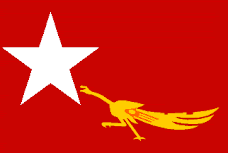[This article was received via email]
5th October 2007
UN SPECIAL ENVOY Ibrahim Gambari left Myanmar Wednesday much as he arrived: with the military junta firmly in control, monks in jail, and the Burmese people fearful of more violence. In the words of Secretary-General Ban
Ki-moon commenting on the visit: "You cannot call it a success."
Indeed, junta leader Than Shwe's offer of "dialogue" with pro-democracy leader Aung San Suu Kyi is transparently disingenuous because it is the same one he has put forward for years - that she abandon her support for sanctions and
her confrontational approach as a precondition of meeting.
As a result, the burden shifts back to the Security Council to see if it will take action. This is no surprise. For decades Myanmar has posed a challenge to the international community torn between a sanction-based approach and constructive engagement. In reality, this is a false dichotomy, and what is likely required now is both more sanctions and more engagement.
The sanction-based approach has been confined to Western democracies. The United States imposed a ban on new investment in 1997 and a ban on the import of many goods in 2003. The European Union, by contrast, imposes
limited sanctions on the junta. Rather than concluding economic sanctions have failed, it is more accurate to say they haven't really been tried, except by the United States.
In Asia, "constructive engagement" policies have prevailed. China, India, and Singapore , among others, have invested billions of dollars in the country. Most trade is centered around energy, timber, and gems. But this approach has demanded nothing in return from the Burmese junta. While Myanmar has been the subject of strongly worded and inconsequential UN resolutions condemning its human rights practices, the country is far from isolated.
A recent study by EarthRights International found that in the past decade more than 26 Chinese multinational companies have invested in 62 hydropower, oil and gas, and mining projects in Myanmar . In 2005, almost $425
million in goods were imported from Myanmar into the EU.
Yet little of this trade has yielded commensurate benefits for most Burmese. The military junta has built a new jungle capital, Naypidaw, and enjoyed a living standard far removed from the ordinary Burmese, who are among Asia's
poorest citizens. The junta's mismanagement, ironically, led to the current impasse: Desperate for hard currency, the generals raised gas prices 500 percent overnight in August, triggering a self-inflicted crisis, and subsequent crackdown.
Real political engagement and harder-hitting sanctions are now required from all actors - but starting especially at the United Nations. Gambari's visit to Myanmar came too slowly, and his prior visits - followed by such self-congratulatory predictions as the claim that the junta has "turned a new page" in its foreign relations - now look naive. The question now is if the Security Council will take any steps to express a clear message to the junta of its need to act.
This will be an uphill struggle, given China's seat at the table. Beijing's backing gives the junta little reason to change its behavior. So far, Beijing has refused to publicly condemn the military-led government. But pressure on China has worked before. A campaign to end China's military sales to Darfur has yielded important results. If Beijing remains
intransigent, countries such as the United States and EU members could call for an Olympic boycott. Beijing only needs to signal to the Burmese junta that the price for continuing to defend its actions is too high.
On the sanctions front, the EU and other like-minded countries could target economic sanctions at foreign investment in Myanmar's larger-scale, formal economic industries such as energy, timber, and gems. The formal economy is owned substantially by the military establishment, their families, and their associates. As three-quarters of Myanmar's people rely on the land to survive, these sanctions would have limited impact on average people in the country but could reduce its access to hard currency. And, as a start, the Security Council should adopt an arms embargo on the Burmese junta given its propensity to turn those arms on defenseless civilians.
Further targeted sanctions combined with a UN negotiator backed by the Security Council may be more persuasive to Burmese junta leader Than Shwe than today's current mishmash of policies. There is no easy solution. But the Burmese people have, yet again, signaled to the world that they yearn to be free. The question is whether the international community will heed their cry for help.
Jared Genser is an attorney in Washington and a term member of the Council on Foreign Relations.
Friday, October 05, 2007
Jared Genser: A New Strategy for Burma
Posted by
May
at
9:58 PM
![]()
Labels: Commentaries
Subscribe to:
Post Comments (Atom)





No comments:
Post a Comment